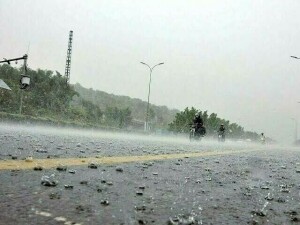ISLAMABAD: The Power Division has invited comments from stakeholders on the country’s electricity market under the Competitive Trading Bilateral Contract Market (CTBCM) of National Electricity Plan (NEP) meant to commence with an initial allocation of 800-MW electricity for five years, subject to revision based on market response.
In a communication to stakeholders, the Power Division circulated proposed amendments to Strategic Directive #87 of the National Electricity Plan 2023–27. Feedback on these amendments is being solicited by May 18, 2025.
According to the Power Division, the proposed changes align with Clause 5.5.2 (g) of the National Electricity Policy, 2021, which mandates the government to make decisions regarding the recovery of costs arising from open access and market liberalisation. The amendments aim to empower the federal government to set up a framework for managing such cost recoveries, particularly in relation to stranded costs.
Transmission and CTBCM: IMF asks PD for efficiency boost in Discos
The Division notes that market liberalisation and disruptive technological innovations present substantial challenges in recovering the costs of existing generation assets. It emphasises the need for an appropriate mechanism that balances financial viability, affordability, and competition to ensure a sustainable transition for the electricity sector.
Power Division, in its proposal has stated that open access charge shall be recovered from all consumers, opting for open access, through competitive suppliers till the currency of this NE-Plan or as amended by the Government, as per the following mechanism: (i) Grid charges, including use of transmission and distribution system charges, Market and system operator fee, cross subsidy charges, metering service charges; etc., shall be applicable to all such consumers; (ii) cost arising on account of open access, comprising of capacity costs, shall be applicable to all such consumers.
Provided further, in case the government decides to reduce the open access charges or any of its components for the consumers opting for open access, it shall provide the funding to bridge the differential costs. While taking any such decision, the Ministry of Finance shall hire a third party consultant to evaluate and verify the impact of such change on the national exchequer and consumers of suppliers of last resort. The reduction or removal of such charges shall only be approved where fiscal space is available in the budget to support such reduction and consumers of suppliers of last resort are not burdened with these charges.
Power Division has sought comments from stakeholders that if the directive 87 shall be deleted and replaced with open access charge shall be recovered as per the following mechanism: (i) Grid charges, including use of transmission and distribution system charges, Market and system operator fee, cross subsidy charges, metering service charges; etc., shall be recovered from all consumers, opting for open access, till the currency of this NE-Plan or as amended by the Government; (ii) The federal government shall provide the frameworks or policy guidelines, from time to time, stipulating the mechanism for recovery of the stranded costs on account of market liberalisation and open access. These frameworks/ policy guidelines shall reflect market realities and include measures/ incentives to facilitate open access/ wheeling of allocated quantum of capacity for a given period, introduce competition and transparency in the market and such other matters as it deems necessary to safeguard consumer interests and advance the economic and social policy objectives of the Federal Government.
Provided that the quantum of capacity for first five years after issuance of the first framework shall be 800MW to be allocated in a competitive and transparent manner, which the federal government may revise keeping in view the market realities and need for further liberalisation.
Provided further that, where no such frameworks or policy guidelines is applicable, such stranded costs shall be paid by all bulk power consumers of a competitive supplier and the amount of such stranded costs shall be the same as the total generation capacity charges recovered from the equally placed bulk power consumers of the suppliers of last resort either in a volumetric form (kWh) or through fixed charges and such charges shall continue to be paid in the said manner till such time as may be reviewed by the Federal Government as per the procedure laid down in the applicable policy and regulatory framework.
However, Korangi Association of Trade & Industry (KATI) in its comments has opposed recovery of stranded costs from the competitive market participants arguing that his retroactive imposition contradicts fundamental principles of open access and economic dispatch.
Bulk power consumers opting for competitive supply should not bear the cost burden of excess generation contracted by legacy utilities under take-or-pay PPAs. Such a provision dis-incentivizes migration to the competitive market, discredits investment confidence, and distorts price signals.
The appropriate mechanisms for managing legacy stranded capacity include :( i) market-based capacity auctions; ii) ancillary service procurement from idle capacity and; iii) integration via balancing and reserve markets governed under the Commercial Code.
The Association has also opposed the inclusion of hybrid bulk power consumers (those sourcing simultaneously from the Supplier of Last Resort and Competitive Suppliers) in the early phase of CTBCM. Without ring-fenced metering, enforceable capacity allocation, and standby cost attribution, such dual sourcing models will result in: (i) load forecasting errors and grid planning inefficiencies; ii) free-riding behaviour by hedging via SoLR; and (iii) imbalance settlements skewed against full competitive participants.
The Association has strongly supported inclusion of Discos and K-Electric as competitive suppliers and dual tariff model for industrial consumers and enforcement of inverter compliance with IEEE/ Nepra Grid Codes, keeping in view the recent blackouts in Spain and Portugal.
Copyright Business Recorder, 2025



















Comments
Comments are closed.